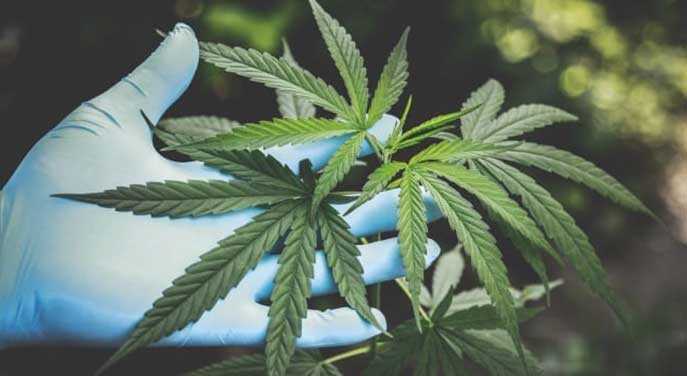Marijuana is known for its calming effects, but recently, it has an opposite effect on the workplace. Many employers now have to use HR management software to navigate and maneuver their way through different state laws and court cases that affect this controversial substance before they can create drug testing policies and procedures. The use and possession of marijuana remain illegal under federal law. However, state laws are changing at an increasing pace, including limiting the ability of a company to dismiss an employee after failing a drug test.
It is no longer news that different state laws now legalize the use of recreational cannabis. This made people wonder what changes are going to come to the workplace. The use of recreational marijuana at work is illegal. At the same time, medical cannabis prescription still falls under the duty of the HR to accommodate. Employers now fear that their employees may abuse this loophole. Studies show that more than 71% of employers are not yet ready to handle the legalization of marijuana in the workplace.
With all that said, this is time for HR specialists to update their practices and policies. Read on to learn more about marijuana in the workplace, and what HR professionals need to know.
What the Law Says
In time past, a workplace drug test shows that the use of marijuana was a punishable offense. In recent times, HR professionals now find themselves in a confusing haze of federal, state, and local laws concerning marijuana and the consequences of a positive test result. According to federal laws, the use of marijuana is illegal. The Controlled Substances Act regard marijuana as a Schedule I controlled substance.
Also, the Americans with Disabilities Act states that employers should make accommodations and provisions for eligible workers with disabilities that possess and use marijuana. Despite this condition, possession and use of marijuana is still a crime under federal law even if it is for medical reasons.
At the state level, the position is not clear. Thirty-four states plus the District of Colombia have legalized the use of marijuana for medical reasons. In 11 states, including the District of Colombia, the use of marijuana for recreational purposes is legal too.
With these conflicting laws, emerging laws and court decisions make it clear that organizations need to assess the use of marijuana in their workplace.
Impact of Marijuana on the Workplace
The foremost concern for HR specialists about the use of marijuana in the workplace relates to safety. Marijuana is already the most encountered substance in workplace drug testing. Employers fear that an increase in the use of cannabis will cause higher cases of impairment in the workplace. Other examples include:
- Accidents and Injuries – Research by the National Institute of drug abuse show that 55% of employees that use marijuana for recreational purpose get involved in industrial accidents. They also experience 85% of injuries and absenteeism, that is 75% higher than employees who do not use marijuana at all. Marijuana can cause on-job accidents, especially if your employees drive vehicles, operate dangerous machinery, or work in a safety-sensitive environment.
- It impairs learning ability
- Loss of coordination
- Trouble with thinking, team-work, and problem-solving
- Disorientation
Consequently, employees who consume marijuana daily are likely to function at a low intellectual level most of the time. Not only that, but it also affects cognitive abilities, career achievements, social lives, including their physical and mental health. All these reduce productivity and put a strain on the organization.
What HR Professionals Need to Know
Each state has different regulations and rules regarding the use of drugs in the workplace. Human resources specialists need to do the following:
1. Get Familiar with the Law
You must be in sync with the laws guiding the use of marijuana in your state. You can start by consulting an attorney. This will save you time and money to be spent later on liability. An attorney is also important is because he will help you adhere strictly to all state laws and policies.
2. Establish a Drug-Free Workplace Policy
With policies, you can now choose how you want to respond to drug use in your workplace. These policies must be fair, free of ambiguity, and consistent. With the conflicting laws, ensure you have clear cut policies in place before workplace issues regarding the use of marijuana start to arise.
Just as employees are not meant to show up drunk at work, they cannot come to work high either. Your drug policies become relevant here. Make sure your employees read, digest, and sign the paperwork. By signing, you can legally ask for a mandatory hair drug test in a state-approved laboratory here when necessary.
Conclusion
Every organization aims to provide the best services to its clients while operating in a safe and drug-free working condition. Don’t tolerate the use of marijuana. Educate your employees about the consequences of a failed drug test. Lastly, your responsibility as an HR specialist is to enlighten your employees and make your workplace safer for everyone.
Mary Walton is a professional editor, content strategist and a part of MarijuanaDetox team. Apart from writing, Mary is passionate about hiking and gaming. Feel free to contact her via Facebook.
This content is a joint venture between our publication and our partner. We do not endorse any product or service in the article.


